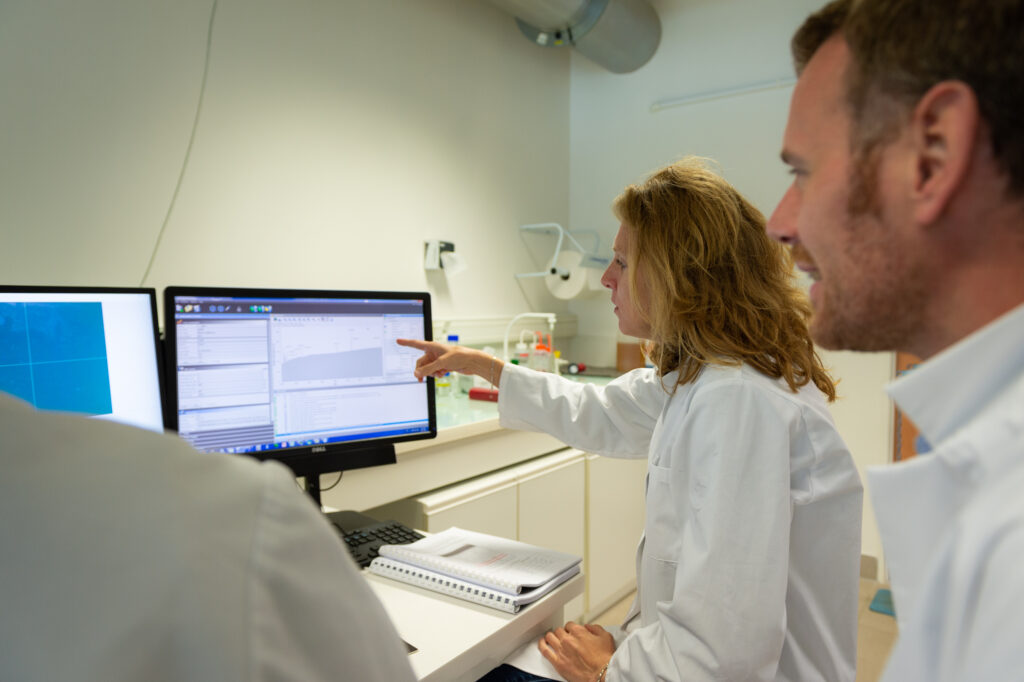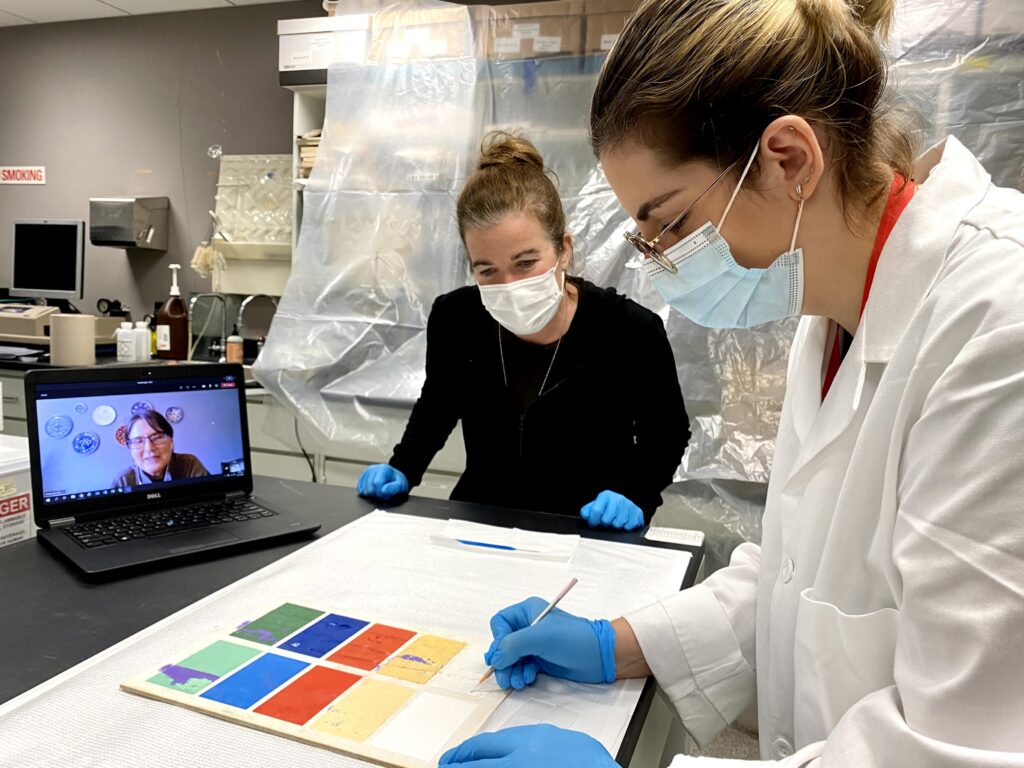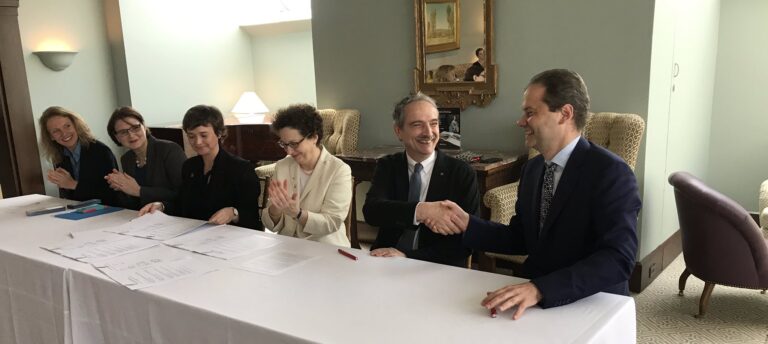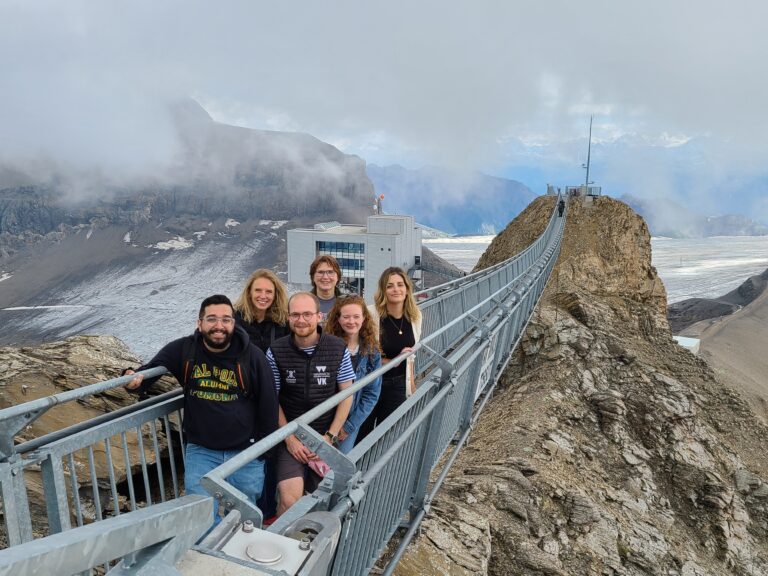Laboratory
ARCHE is a CNRS International Laboratory (IRP) between The Metropolitan Museum of Art and the University of Bordeaux
ARCHE is coordinated by Caroline Tokarski (Université de Bordeaux, CNRS) and Julie Arslanoglu (The Metropolitan Museum of Art). Their previous collaborations resulted in the introduction of proteomics and immunoassay in the field of cultural heritage, allowing for precise identification of proteins and their biological species of origin, as well as targeted localization of proteins in a sample.


Following over a decade of collaborative work between Julie Arslanoglu and French scientist Caroline Tokarski, the CNRS, the French state scientific research organisation, approved the formation of an International Research Project (IRP), a “laboratory without walls”, between The Metropolitan Museum of Art (The Met) and the Université de Bordeaux. Julie Arslanoglu, of The Met’s Department of Scientific Research, and Professor Caroline Tokarski, an international authority on mass spectrometry, will collaborate on advanced studies of organic polymers found in artworks by mass spectrometry techniques.
The collaboration is called ARCHE (Art and Cultural Heritage): Natural Organic Polymers by Mass Spectrometry. A CNRS‐IRP is very prestigious: the CNRS only supports 11 international partnerships every 4 years, and our partnership is the only new one approved to begin in January 2019. It is designed to structure collaboration between two research teams or laboratories (one in France and the other abroad) for their cutting-edge scientific development and scientific excellence.

THE CNRS-LIA, ARCHE, was launched on 30th May 2019, at the Metropolitan Museum of Art
From left to right: Caroline Tokarski and Julie Arslanoglu, the co-directors of ARCHE; Hélène Jacquet, Deputy Director of the University of Bordeaux in charge of the strategy and development; Andrea Bayer, Deputy Director for Collections and Administration, The Metropolitan Museum of Art; Jacques Maddaluno, Director of the CNRS Institute for Chemistry; Max Hollein, Director of The Metropolitan Museum of Art
Launched on May 30, 2019 at The Met, ARCHE establishes collaboration between the CNRS, the University of Bordeaux, Bordeaux INP and The Met. The work of this international research initiative supports the ability to scientifically understand the material dimension of the museum collection, especially for conservation and preservation of artworks, and to reconnect the relationship between history and natural products. The scientific program proposes the development of techniques for the structural study of organic macromolecules (proteins, lipids, polysaccharides) used to create cultural heritage and their molecular networks, as well as for the elucidation of their degradation mechanisms, the ARCHE program links scientific analysis to art conservation and preservation of works of art. The project also incorporates new imaging techniques based on immunological and high-resolution mass spectrometry techniques for the precise localization of organic materials and their molecular interactions. This is an inclusive initiative designed to incorporate many museums, laboratories and scientific approaches applied to the study of natural organic material used to create artworks. Our members are growing as our projects develop.
The laboratories associated through an IRP retain their separate autonomy, status, Director, and location. The partnership allows both institutions to enhance their collaboration, fully share research results, and facilitates student exchanges. The collaboration is beneficial to both institutions: the CNRS and the Université de Bordeaux recognize the global renown of the Met and the leadership position of its staff in art history, conservation and science. Having the Met as a partner for applied research provides depth and validation for the scientific work performed at the Université de Bordeaux. On the other hand, the Met gains knowledge, research abilities, and access to equipment that is otherwise inaccessible.
ARCHE is not a stagnate entity: it grows by inviting other partners to join the platform and through collaborative projects. The platform leverages the resources of academia with the collections, questions, and knowledge of museums and archives. The goal is to increase the accessibility and value of the study of biological materials in cultural heritage as well as to delve into some of the most complex chemistries of cultural heritage by creating and sharing databases, refining and evaluating protocols, establishing analytical methodologies and workflows, and exploring multifaceted instrumental approaches. We have a strong to commitment to education through the Bordeaux Applied Mass Spectrometry in Cultural Heritage Summer School and other activities. We are also strongly committed to supporting our collaborators and partners. Our core values are collaboration, education, recognition, and innovation.

The ARCHE group attending the GRC 2022, Scientific Methods in Cultural Heritage Research, in Les Diablerets, Switzerland.

